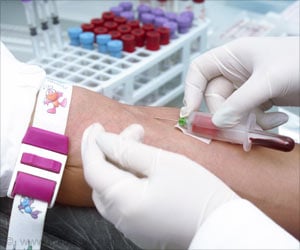
- Alzheimer’s disease is the most common type of dementia and accounts for 60% to 80% of dementia cases
- Nearly 44 million people worldwide have Alzheimer’s disease or a related dementia
- A new biochip-based blood test which allows multiple tests to be run on one blood sample helps in early detection of risk for Alzheimer’s disease and is as accurate as the DNA test
Early-onset Alzheimer disease is caused by gene mutations in one of three genes: APP, PSEN1, or PSEN2 that can be passed from parents to children. The late-onset Alzheimer’s disease can be attributed to a form of the apolipoprotein E (ApoE4) gene on chromosome 19 that increases the person's risk for Alzheimer’s disease. However, not every person with APOE E4 allele will develop the disease and sometimes those who have the disease may not have the allele. Testing of the gene currently helps scientists to look for early brain changes in those positive for the allele and compare the effectiveness of treatments for people with different APOE profiles.
Biochiop based testing
A new biochip test detects the presence of a protein in the blood produced by the ApoE4 variation. When patient person inherits the ApoE4 variant from one parent, he/she has a three times greater risk of developing Alzheimer's disease, whereas a person who inherits the ApoE4 variant from both parents is eight-to-12 times more likely to develop the disease.
To verify the accuracy of the biochip test, researchers from Randox Laboratories collaborated with research colleagues at the Medical University of Vienna. They analyzed 384 samples and compared the results of the biochip test with a standard DNA test.. They found that the two tests were similar in detecting the risk for Alzheimer’s disease. The biochip test allows clinicians and researchers to run multiple tests on one sample of blood.. It gives results in three hours and is more affordable than the standard DNA test.
“Pairing this test with medical and family history for risk of Alzheimer’s disease has the real potential to advance personalized medicine,” said Harte. “This fast, accurate testing will allow doctors and patients to make more informed choices earlier to potentially slow the possible progress of Alzheimer’s.”
References:
- Alzheimer's Disease Genetics Fact Sheet - (https://www.nia.nih.gov/alzheimers/publication/alzheimers-disease-genetics-fact-sheet)
- Genetic testing - (https://www.alzheimers.org.uk/site/scripts/documents_info.php?documentID=434)
- What Is Alzheimer's? - (http://www.alz.org/alzheimers_disease_what_is_alzheimers.asp)
- Alzheimer disease - (https://ghr.nlm.nih.gov/condition/alzheimer-disease#genes)















